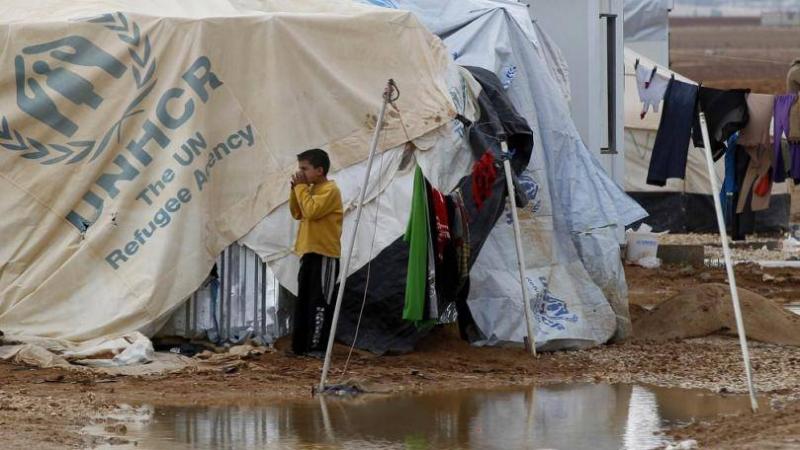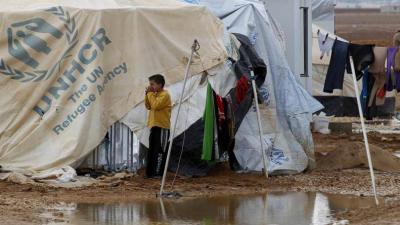Confusion and disorder characterize the official approach to the Syrian displacement issue. Following the ministerial debate that erupted during the consultative meeting called by the designated Prime Minister Najib Mikati at the Grand Serail on Wednesday, "the clarity was lost," and the Lebanese do not understand who is right or who to blame. Minister of Social Affairs Hector Hajjar stated that he was tasked by the Cabinet regarding this matter, while Minister of the Displaced Persons Issam Charafeddine announced that he visited Syria on the mandate and blessing of President Michel Aoun.
Amid this confusion, opposition political sources told "Al-Markazia" that the statements made by the President yesterday exacerbated the noise and disorder. Why? Because he raised his voice against international efforts to integrate the displaced, right after Charafeddine confirmed in Damascus the readiness to cooperate and to welcome more than 15,000 displaced persons daily. The President deemed that "the efforts of some countries to integrate the Syrian displaced persons present in Lebanon into the Lebanese community is a crime that Lebanon will not accept at any cost, in addition to the fact that local, regional, and international laws reject the displacement of a people from their land for any reason."
President Aoun informed Canadian Minister of International Development Harjit Sajjan during his reception yesterday morning at Baabda Palace that "Lebanon is preparing a legal study that will be submitted to the United Nations regarding the Syrian displacement issue, and we hope for support from friendly countries, especially since the current conditions in Syria facilitate the return of the displaced to their homeland, particularly as Lebanon can no longer bear the economic, social, health, and security burdens resulting from the presence of about 1.5 million Syrian displaced individuals on its territory."
The President stressed to the Canadian minister that "it is untrue what some countries and international organizations claim, that returning Syrians will face persecution, imprisonment, or other penalties, as about 500,000 Syrians have returned from Lebanon to Syria in organized groups over the past years, and the Lebanese General Security did not report any harassment they faced upon return. Furthermore, Syrian officials have officially stated that they want the return of their nationals who wish to return."
President Aoun stated: "In light of these facts, we have begun to doubt the positions taken by certain countries and organizations. If the goal is to settle the Syrian displaced persons in Lebanon, we completely reject that, just as we previously rejected the settlement of Palestinians in our land." He confirmed that "Lebanon has repeatedly urged international organizations to provide assistance specifically for Syrian displaced persons within Syrian territories, not in Lebanon, as this step encourages the displaced to return. However, Lebanon's requests in this regard have not received a response, which raises our concern about what could be conspired behind the scenes against Lebanon and the Lebanese people."
So why all this concern if, as Charafeddine said, there is actual Lebanese-Syrian agreement on their return to their homeland? the sources inquire, adding, "Aoun's talk about a document that will be sent to the United Nations adds a new official tool for the Lebanese state to deal with the displacement crisis, knowing that none of these have thus far led to the return of a single displaced person to Syria. Meanwhile, the roadmap for their return is exceedingly simple if intentions are sincere and positions genuine; it involves summoning the Syrian ambassador in Lebanon, Ali Abdul Karim Ali, and informing him of the plan and mechanisms for the return of his countrymen to convey that to his competent authorities with explanations for the implementation... Yet the fear is great that the various components will ruin the "difficult recipe for return," the sources conclude.




